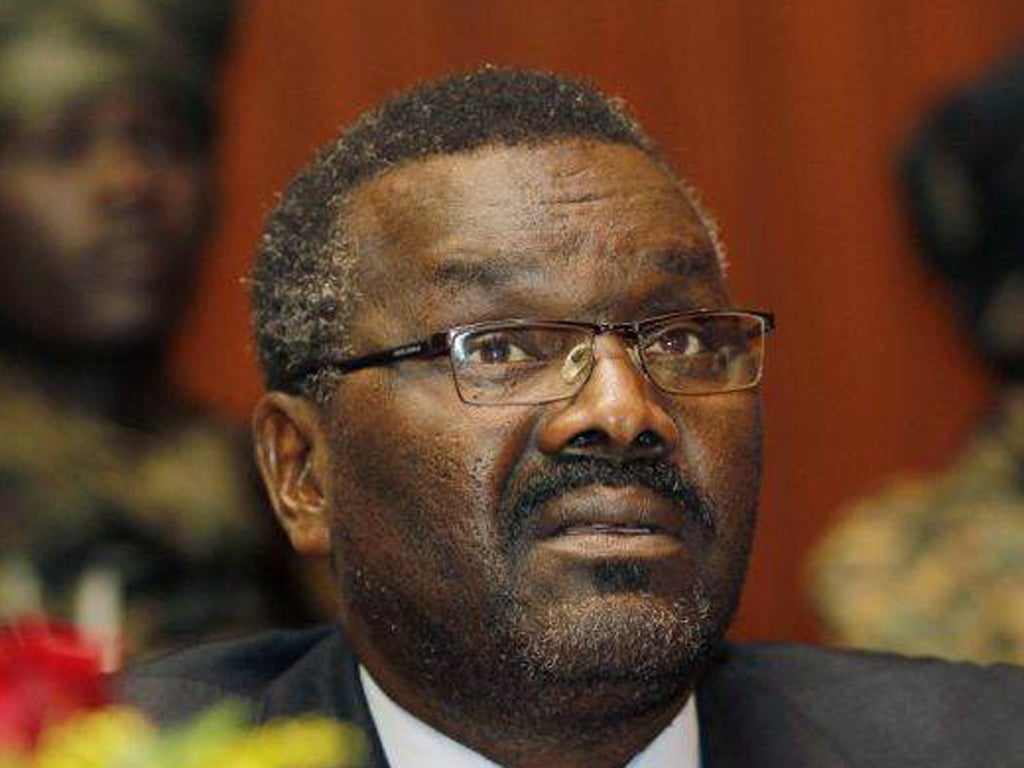
Your support helps us to tell the story
From reproductive rights to climate change to Big Tech, The Independent is on the ground when the story is developing. Whether it's investigating the financials of Elon Musk's pro-Trump PAC or producing our latest documentary, 'The A Word', which shines a light on the American women fighting for reproductive rights, we know how important it is to parse out the facts from the messaging.
At such a critical moment in US history, we need reporters on the ground. Your donation allows us to keep sending journalists to speak to both sides of the story.
The Independent is trusted by Americans across the entire political spectrum. And unlike many other quality news outlets, we choose not to lock Americans out of our reporting and analysis with paywalls. We believe quality journalism should be available to everyone, paid for by those who can afford it.
Your support makes all the difference.The Sudanese army said it killed the leader of the main Darfur rebel group in fighting today and touted his death as a key victory.
The army said Khalil Ibrahim, who led the Darfur-based Justice and Equality Movement, or JEM, was killed during a military offensive in North Kordofan state to retaliate for a deadly rebel attack there on Saturday. JEM is the most organized and effective military force in Darfur, the western region torn by conflict since 2003. JEM did not join a peace deal signed last year between other Darfur rebel groups and Sudanese President Omar al-Bashir's government in Khartoum.
JEM representatives could not immediately be reached for comment. But if Ibrahim's death is confirmed, it would be a serious blow to JEM, which has on several occasions threatened to bring down al-Bashir's regime in Khartoum by advancing toward the capital.
Darfur has been in turmoil since 2003, when ethnic African rebels accusing the Arab-dominated Sudanese government of discrimination took up arms against it. The Khartoum government is accused of retaliating by unleashing Arab militias on civilians — a charge the government denies. The conflict has tapered off since 2009, but the U.N. estimates 300,000 people died and 2.7 million have been displaced. The International Criminal Court in the Hague has issued an international arrest warrant for al-Bashir for his alleged role in crimes against humanity in Darfur.
An army statement carried by Sudan's official SUNA news agency said Ibrahim and several associates were killed in Wad Banda, about 440 miles (700 kilometers) west of Khartoum in the North Kordofan region, which borders Darfur.
"The army cut all paths for the group as it was retreating and trying to cross into South Sudan to reorganize it forces," said Sudanese army spokesman Col. Sawarmy Khaled. "Our gallant armed forces were able to kill rebel Khalil Ibrahim along with some of his associates."
South Sudan seceded from the north in July to become the world's newest nation.
Fighting in Wad Banda had flared up in the past few days. On Saturday, the Sudanese army said Darfur rebels attacked three locations in neighboring North Kordofan, killing an unspecified number of civilians.
JEM has not claimed responsibility for the attack. However, in a dramatic push in 2008, hundreds of JEM fighters drove through the remote western region and attacked Khartoum's western outskirts. More recently, JEM spread its armed presence from Darfur into North Kordofan.
Ibrahim is believed to have recently returned to Sudan after years in exile in neighboring Libya, where he enjoyed the patronage of Moammar Gadhafi before he was ousted and killed in October at the hands of revolutionary fighters.
Ibrahim once served in al-Bashir's government before joining the rebellion. He refused to join a peace agreement signed in Qatar and backed by the African Union that was meant to provide a basis for a cease-fire, power sharing, equal distribution of wealth and compensation for displaced people.
"He completely refused to come to the negotiating table, he never joined the peace talks," Ismail el-Haj Musa, Sudanese deputy speaker of the council of states, told the pan-Arab Al-Jazeera TV on Sunday. "He committed acts against the state."
AP
Join our commenting forum
Join thought-provoking conversations, follow other Independent readers and see their replies
Comments